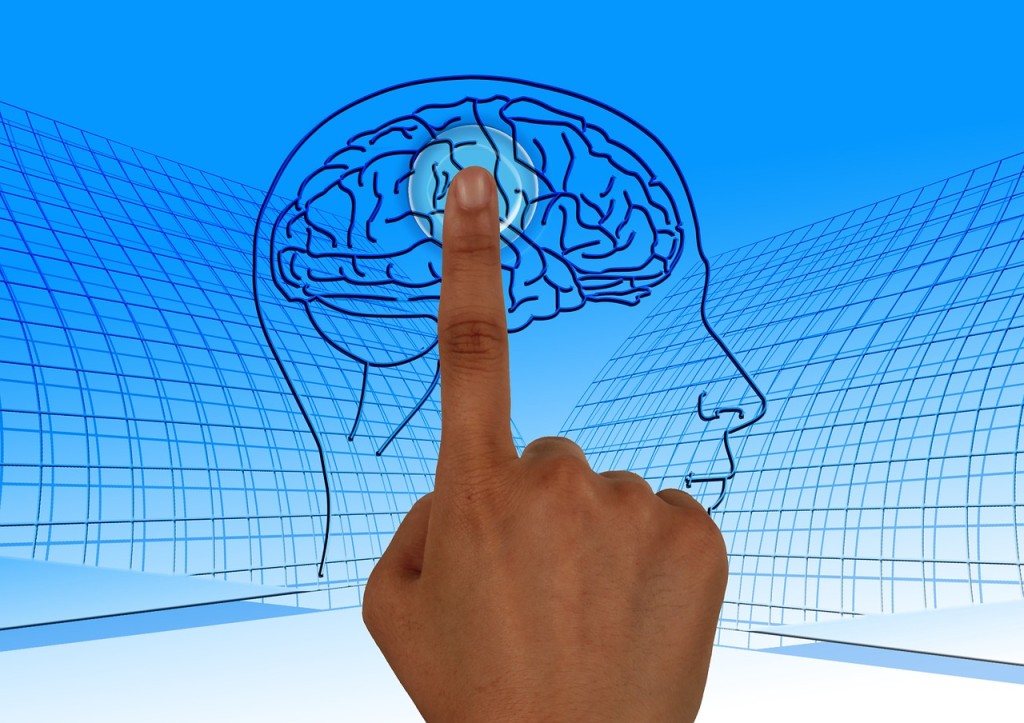
Addictions are an attempt to escape pain and find pleasure. Makes perfect sense to me! Life can be incredibly painful, frustrating, and difficult and heart breaking. Who wouldn’t want to pursue more pleasure and less pain?
The Chemistry Behind Addiction
We are wired this way. It makes sense that we are drawn toward feeling good.
Our brain chemistry is a fascinating and complex chemical environment and norepinephrine, dopamine, serotonin and other “feel good” chemicals can be triggered by substances, behaviors and positive environmental experiences.
It doesn’t take a genius to pick up on the fact that certain substances and behaviors make us “feel good” and to conclude, at least subconsciously, that we ought to keep doing this to feel better and escape pain.
So, Joe may take OxyContin to alter his brain chemistry and feel more peaceful, joyful and balanced. Sally might spend hours at a slot machine in the back of a bar to get her high.
Mike might engage in meaningless and risky one night stands to find his pleasure. Whereas, I (an eating disorder sufferer in recovery) might ingest large quantities of sugar and highly refined and palatable foods to trigger my brain to release the pleasurable chemicals.
See a correlation here? We are all seeking pleasure through attempts to alter our brain chemistry by our behaviors.
The Damages of Seeking to Avoid Pain and Increase Pleasure
It gets even more convoluted when we seek to avoid pain and increase pleasure through multiple behaviors – such as seeking out booze, drugs, and sex and maybe even binge eating simultaneously.
 That is like trying to permanently depress the pleasure lever in our brain to avoid the pain of our angst and uncomfortable feelings.
That is like trying to permanently depress the pleasure lever in our brain to avoid the pain of our angst and uncomfortable feelings.
Consider these facts:
- 24.6 Million Americans, 12 years and up, used Illicit drugs in 2013.
- 30% of American men and 16% of American women engaged in binge drinking in the last month.
- 4 million American women and 5 million American men reported misuse or abuse of prescription medication in the last year.[1]
Look at Elvis Presley, Lamar Odum, Chris Farley and Demi Lovato – just to name a few who have suffered from multiple addictions and co-occurring issues, such as eating disorders and/or co-occurring issues.
These folks have fame, money and seemingly the “high life”, yet they were evidently in so much pain that they pulled out all the stops to anesthetize themselves.
Tragically, this has ended in death, debilitating strokes and significant career impact and professional/personal embarrassment.
Painful feelings such as regret, despair, grief, sadness, resentment, anxiety, fear and more are very difficult for any of us humans to deal with! We are rarely taught how to effectively acknowledge or express our feelings, let alone tolerate these painful emotions without unhealthy escapism avenues.
Addiction and Trauma
 So, it is fair to say that most of us are not well prepared to deal with painful emotions. Then, enters trauma.
So, it is fair to say that most of us are not well prepared to deal with painful emotions. Then, enters trauma.
- It is estimated that 70 percent of adults in the United States have experienced a traumatic event at least once in their lives.
- Research suggests that prolonged trauma may disrupt and alter brain chemistry. For some people, this may lead to the development of PTSD.
- An estimated 5 percent of Americans—more than 13 million people—have PTSD at any given time. {2}
Trauma is an emotional response to a deeply disturbing event that occurs. Often, trauma is not adequately address at the time it occurs, and the individual is left struggling with re-occurring memories and painful depression, anxiety and even shame for years following the traumatic event.
Couple that burden with an inborn desire to avoid pain and seek pleasure and you have the perfect breeding ground for an addiction to develop.
A Predisposition to Addiction
One more nail in the coffin remains, many of us are born with a predisposition toward addiction, depression, anxiety, eating disorders and other issues.
 When our brain chemistry is already compromised and we are struggling to just feel okay, it becomes even more likely that we will seek to alter our brain chemistry in any way we can to feel good.
When our brain chemistry is already compromised and we are struggling to just feel okay, it becomes even more likely that we will seek to alter our brain chemistry in any way we can to feel good.
So, we have an equation here:
Biological Predisposition + Environmental Trauma + Difficulty Processing Painful Feelings = High probability of addiction
It is important for us to recognize all the factors behind the development of an addiction and to have compassion for the sufferer.
This did not develop out of thin air and the addict is more than likely dealing with a painful combination of all three issues: biology, environmental trauma and deeply uncomfortable feelings.
When we approach our loved one or friend who is dealing with addiction, we can seek to appreciate all that went into the development of this dysfunctional behavior.
We can also have hope that even if they are mired in their addiction at the moment, much can be done to alleviate the internal emotional discomfort and destructive habits that are harming the addict.
Sources:
[1] National Institute on Drug Abuse. Nationwide Trends Retrieved from http://www.drugabuse.gov/publications/drugfacts/nationwide-trends on January 15, 2016
[2] Post-Traumatic Stress Disorder Fact Sheet. (n.d.). Retrieved January 15, 2016, from http://www.sidran.org/resources/for-survivors-and-loved-ones/post-traumatic-stress-disorder-fact-sheet-2/
About the author:
 Jacquelyn Ekern, MS, LPC – Founder & Director
Jacquelyn Ekern, MS, LPC – Founder & Director
Jacquelyn Ekern founded Addiction Hope in January, 2013, after experiencing years of inquiries for addiction help by visitors to our well regarded sister site, Eating Disorder Hope. Many of the eating disorder sufferers that contact Eating Disorder Hope also had a co-occurring issue of addiction to alcohol, drugs, and process addictions (such as gambling, sex, shopping, etc). Because she believes in holistic recovery that addresses all of the destructive patterns or behaviors engaged in by the individual, it became clear that it would be helpful to also have a site that deals foremost with addiction, for those that suffer from addiction as a primary concern.
Jacquelyn Ekern is a fully licensed therapist and she manages both the Addiction Hope and Eating Disorder Hope organizations and websites.
Jacquelyn has a Bachelor of Science in Human Services degree from The University of Phoenix and a Masters degree in Counseling/Psychology, from Capella University. She is a member of the National Eating Disorder Association (NEDA), Academy of Eating Disorders (AED), the Eating Disorders Coalition (EDC) and the International Association of Eating Disorder Professionals (iaedp).
The opinions and views of our guest contributors are shared to provide a broad perspective of addictions. These are not necessarily the views of Addiction Hope, but an effort to offer discussion of various issues by different concerned individuals.
We at Addiction Hope understand that addictions result from a combination of environmental and genetic factors. If you or a loved one are suffering from an addiction, please know that there is hope for you, and seek immediate professional help.
Reviewed By: Jacquelyn Ekern, MS, LPC on January 28, 2016
Published on AddictionHope.com

